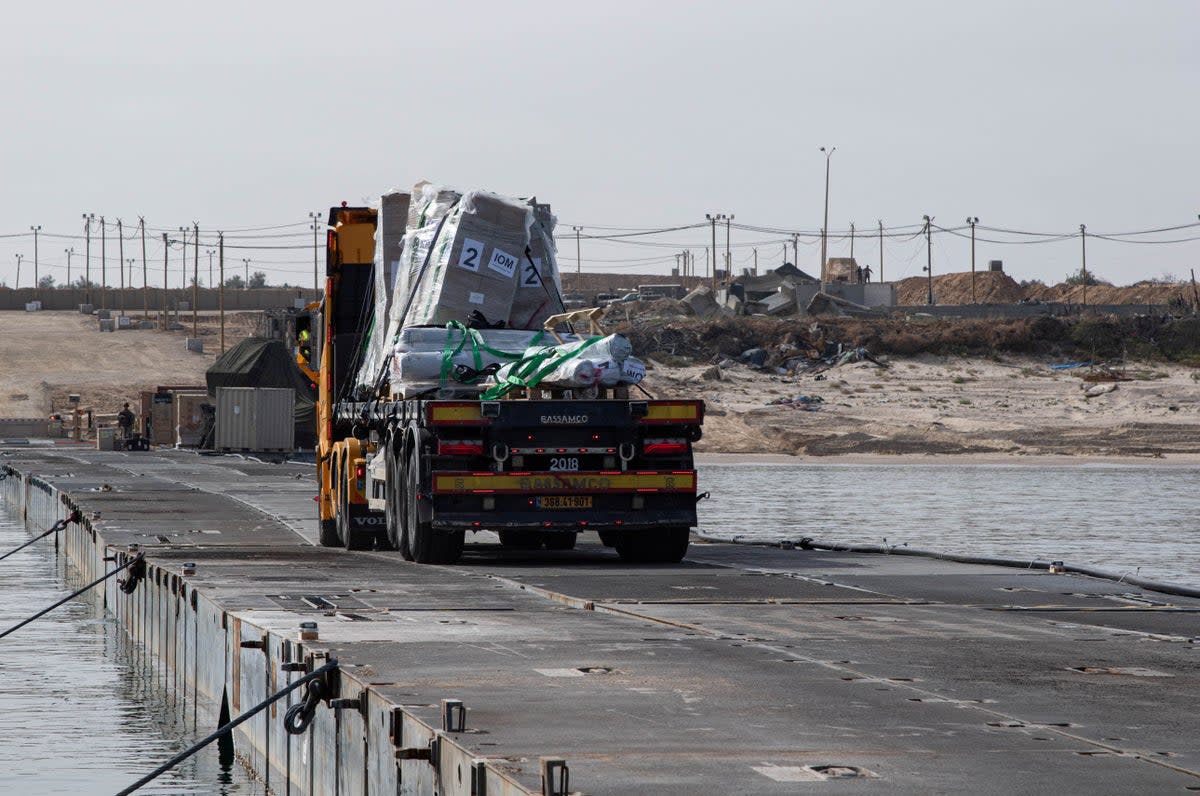Israeli military announces 'tactical pauses' in parts of southern Gaza

Israel's military announced on Sunday that it will implement a daily pause in fighting during daylight hours along a route in southern Gaza.
This pause is intended to facilitate the delivery of humanitarian aid to Palestinians suffering from a severe crisis due to the ongoing conflict, now in its ninth month.
The "tactical pause" will cover approximately 12 kilometres (7.4 miles) of road in the Rafah area, but it falls short of the complete ceasefire that the international community, including the United States, has called for.
If successful, it could help address some of the urgent needs of Palestinians, which have escalated following Israel's recent incursions into Rafah.
The military said the pause will start at 8am (5am GMT) and end at 7pm (4pm GMT) each day until further notice.
This measure is designed to allow aid trucks to safely reach the Israel-controlled Kerem Shalom crossing, the primary entry point for aid, and travel to the Salah a-Din highway, a major north-south route.
The crossing has been congested since Israeli ground forces entered Rafah in early May.
COGAT, the Israeli military body overseeing aid distribution in Gaza, indicated that this route would help increase the flow of aid to various parts of Gaza, including Khan Younis, Muwasi, and central Gaza. Northern Gaza, heavily impacted early in the conflict, is receiving supplies through a northern crossing.
The pause follows discussions with the United Nations and international aid agencies, although these organisations have not yet commented on the announcement.
This development coincides with ongoing deliberations between Israel and Hamas over a cease-fire proposal, which President Joe Biden detailed in a significant diplomatic effort. While Biden described it as an Israeli proposal, Israel has not fully endorsed it, and Hamas has requested modifications that Israel finds unacceptable.
Israel's eight-month military campaign against Hamas, triggered by Hamas's attack on 7 October, has led to a humanitarian crisis in Gaza.
The UN reports widespread hunger and imminent famine for hundreds of thousands of people. The international community has urged Israel to alleviate the humanitarian strain, emphasising that the fighting, particularly in Rafah, has severely hindered aid deliveries.
From 6 May to 6 June, the UN received an average of 68 aid trucks per day, down from 168 per day in April and significantly below the 500 trucks per day that aid groups deem necessary.
The decline in aid to southern Gaza coincides with increased humanitarian needs, as over 1 million Palestinians, many already displaced, fled Rafah after the invasion, crowding into other parts of southern and central Gaza. These people are now living in makeshift tent camps with inadequate sanitation facilities.
COGAT claims there are no restrictions on truck entries, citing that over 8,600 trucks, both aid and commercial, entered Gaza from 2 May to 13 June, averaging 201 per day.
However, much of this aid has been delayed at the crossings. COGAT spokesperson Shimon Freedman blamed the UN for logistical issues and a shortage of trucks.
The UN countered that the conflict often makes travel to Kerem Shalom too dangerous and that the Israeli military's authorisation system for drivers has slowed deliveries. Additionally, aid trucks have sometimes been looted due to security issues.
The new arrangement aims to streamline deliveries by providing an 11-hour daily window for uninterrupted truck movement. It remains unclear whether the military will offer security for these aid trucks along the highway.


